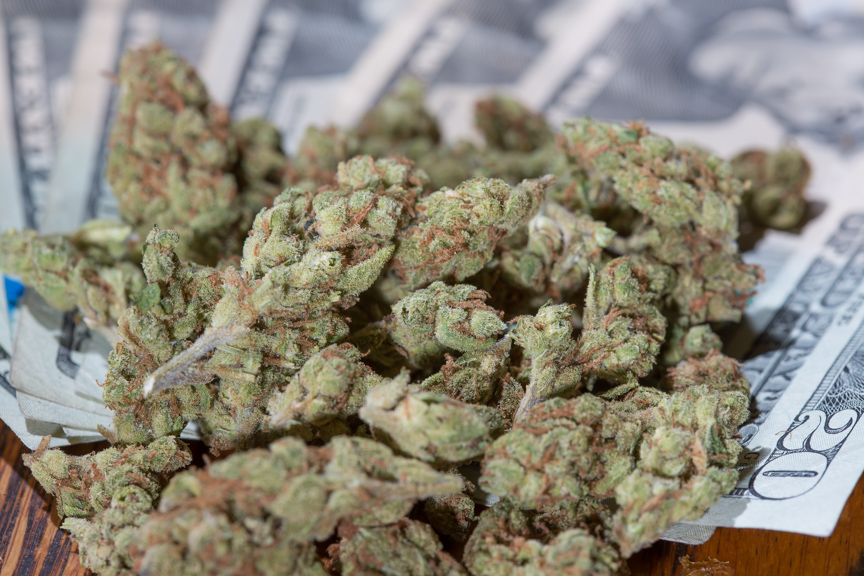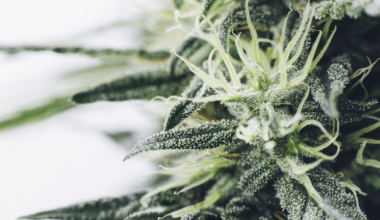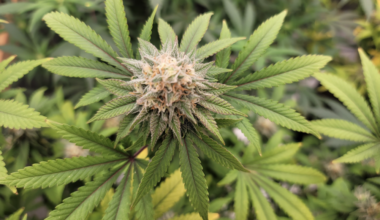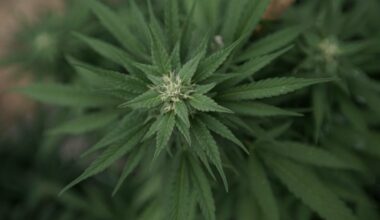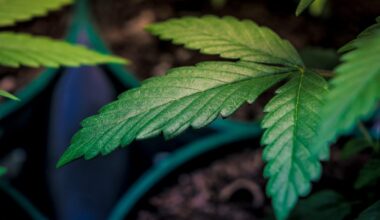The federal government has generally taken a hands-off approach to marijuana enforcement in states that have chosen to legalize the plant. So why did a federal agency recently raid a small, home cannabis garden of a medical cannabis patient living on Indian territory in New Mexico?
That’s a question that officials with the Pueblo of Picuris are asking following the Bureau of Indian Affairs (BIA) raid in September. And the response from the agency, which falls under the Department of the Interior, has done little to clear things up.
“Why is Picuris being discriminated against or picked on?” the governor of the tribe, Craig Quanchello, said in a phone interview with Marijuana Moment on Tuesday. “Why are we having to suffer the consequences of a rogue officer? That’s what we’re trying to get to.”
“That’s the story we’re trying to tell, is for them to have some equality across the Indian country for tribes,” he said, adding that the tribe wants to know “what is that secret criteria that is needed by the feds to not bother us that everybody else seems to have except us?”
While the 54-year-old patient who had cultivated the nine seized marijuana plants isn’t Native American, he’s married to a tribal member and lives on the territory, which itself is located within a state where medical and recreational cannabis is legal and people can grow plants for personal use.
“I was just open with the officer, straightforward,” Charles Farden said of the raid, talking to The Associated Press. “When he asked what I was growing, I said, ‘My vegetables, my medical cannabis.’ And he was like, ‘That can be a problem.’”
The Pueblo of Picuris sent a letter to BIA through an attorney the day after the encounter, expressing concern about the lack of notification about the enforcement action.
“We consider yesterday’s raid at the Pueblo to have been a gross invasion of the Pueblo’s sovereign authority over its members and other persons residing on its lands,” the letter states. “While possession of cannabis is, as we acknowledged, technically a violation of federal law, the fact that the United States has plainly adopted a hands-off attitude in the many states that have legalized cannabis possession and sale, for medical purposes and, increasingly, for personal, recreational use, demonstrates that cannabis possession is not considered by the federal government to be a matter warranting law enforcement attention.”
“We are thus extremely surprised, and concerned, that BIA law enforcement officers, who surely have far more pressing priorities, would take it upon themselves to carry out an operation like this, particularly where it was against persons whose possession of cannabis was for medical purposes,” it continues.
The tribe also noted that it is in the process of working on an intergovernmental agreement with the state of New Mexico to legalize cannabis sales for adult-use under a law that was enacted earlier this year. The governor told Marijuana Moment that it intends to move forward, but the raid has given officials some pause about exactly what a regulated market would look like within Picuris and how the federal agency would respond.
“We’re farmers by nature. This is something that we’re good at,” Quanchello said. “This is something that that our whole people can benefit from—from a holistic approach to an economic approach. And at the end of the day, we can utilize this money to fund our counselors, to fund education, to fund all these resources that get limited funding.”
In response to the tribe’s letter, BIA wrote to tribal officials that “prior notification of law enforcement operations is generally not appropriate” because it could threaten the safety of officers.
The tribe’s letter “also expressed the Pueblo’s concern that the cannabis plants may have been unfairly seized,” the agency noted. “BIA OJS is obligated to enforce federal law and does not instruct its officers to disregard violations of federal law in Indian Country.”
New Mexico has legalized marijuana for adult and medical use, and Picuris Pueblo decriminalized cannabis in 2015. But the larger question is why the federal government chose to intervene in this specific circumstance.
The Justice Department is barred from using its funds to interfere in state-legal medical marijuana programs as part of a congressional spending bill rider that’s been consistently renewed since 2014. And there was past guidance under the Obama administration that laid out enforcement priorities that generally respected the rights of states, as well as a similar memo on marijuana programs in Indian territory, before they were rescinded by former Attorney General Jeff Session.
But while Congress hasn’t explicitly passed legislation that restricts the Interior Department’s ability to go after people for cannabis, the general expectation for years has been that the federal government isn’t interested in prosecuting individual people, much less patients, over marijuana activity that’s lawful in the jurisdiction.
Marijuana Moment reached out to BIA for clarification, but a spokesperson said the agency “has no additional information to provide.” The Interior Department did not respond to a separate inquiry by the time of publication.
“We share the Pueblo’s concern for public safety and look forward to our continued partnership to protect the well-being of the citizens of the Pueblo of Picuris,” the agency wrote in its letter to tribal officials.
Meanwhile, a bipartisan group of congressional lawmakers is asking House leaders to include provisions broadly protecting states and territories that have legalized marijuana from facing federal interference in final spending legislation for Fiscal Year 2022.
Amendments with those provisions were made in order for floor votes by the House Rules Committee in July for the Commerce, Justice, Science, and Related Agencies (CJS) funding package, but that spending legislation has yet to be taken up on the floor as a result of disputes on other, unrelated law enforcement provisions.
The cannabis language has been proposed in past sessions as well, passing the House last year and in 2019. But it was not attached to final appropriations legislation sent to the president’s desk under GOP control of the Senate. Now that Democrats have a slim majority in that chamber, advocates are optimistic that it could finally be enacted, though as written it would only apply to the Department of Justice, and not Interior.
Read the letters from Pueblo of Picuris and BIA on the marijuana raid below:
Majority Of Texas Republicans Back Marijuana Legalization, Poll Finds
Photo courtesy of Mike Latimer.
Medical Disclaimer:
The information provided in these blog posts is intended for general informational and educational purposes only. It is not a substitute for professional medical advice, diagnosis, or treatment. Always seek the advice of your physician or other qualified healthcare provider with any questions you may have regarding a medical condition. The use of any information provided in these blog posts is solely at your own risk. The authors and the website do not recommend or endorse any specific products, treatments, or procedures mentioned. Reliance on any information in these blog posts is solely at your own discretion.
